Related Research Articles
This article contains information about the literary events and publications of 1668.
Ilse Aichinger was an Austrian writer known for her accounts of her persecution by the Nazis because of her Jewish ancestry. She wrote poems, short stories and radio plays, and won multiple European literary prizes.
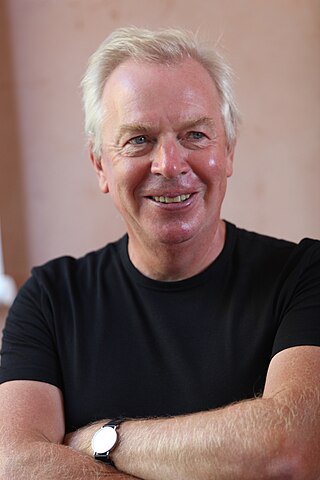
Sir David Alan Chipperfield, is a British architect. He established David Chipperfield Architects in 1985, which grew into a global architectural practice with offices in London, Berlin, Milan, and Shanghai.

Frederick Philip Grove was a German-born Canadian novelist and translator.
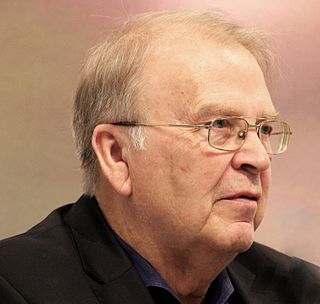
Wilhelm Genazino was a German journalist and author. He worked first as a journalist for the satirical magazine pardon and for Lesezeichen. From the early 1970s, he was a freelance writer who became known by a trilogy of novels, Abschaffel-Trilogie, completed in 1979. It was followed by more novels and two plays. Among his many awards is the prestigious Georg Büchner Prize.

Peter Huchel, born Hellmut Huchel, was a German poet and editor.
Königshausen & Neumann is a publisher based in Würzburg, Germany. The publishing house was founded in 1979 by Johannes Königshausen and Thomas Neumann. It focuses on the humanities and publishes book titles in the field of philosophy, literature, psychology, society and culture. Königshausen & Neumann has its own print shop. The publishing house is a member of the Börsenverein des Deutschen Buchhandels.

Alice Rühle-Gerstel was a German-Jewish writer, feminist, and psychologist.
Odo Marquard was a German philosopher. He was a professor of philosophy at the University of Giessen from 1965 to 1993. In 1984 he received the Sigmund Freud Prize for Scientific Prose.
Roland Hagenbüchle was a scholar for American Studies and cultural philosopher.
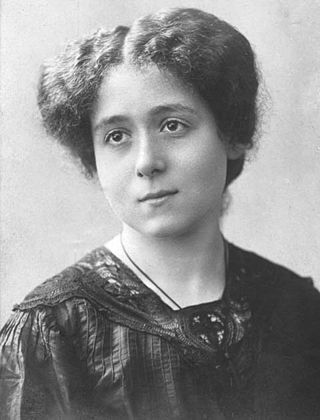
Bertha Badt-Strauss was a German writer and Zionist. She wrote for numerous Jewish publications in Berlin and the United States, and edited and translated the works of many other writers.

Memoirs of a Good-for-Nothing is a novella by Joseph von Eichendorff. Completed in 1823, it was first printed in 1826. The work is regarded as a pinnacle of musical prose. Eichendorff created an open form with epic and lyrical elements, incorporating several poems and songs in the text. It was first published in English in 1866.
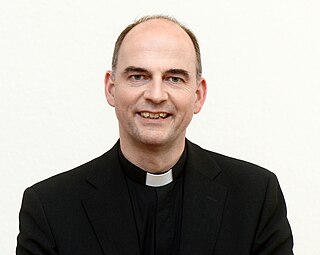
Franz Jung is a German Roman Catholic bishop.
Rainer Cadenbach was a German musicologist and University professor.
An der Zeitmauer is a 1959 book by Ernst Jünger. It discusses the relationship between the Earth and mankind, and how it is challenged by emerging technology.
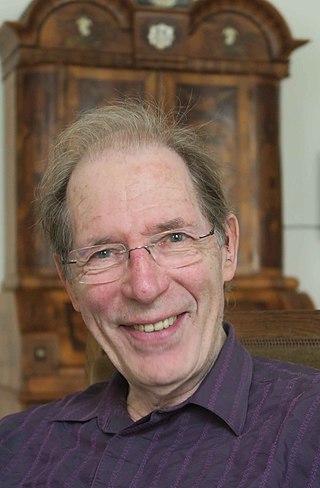
Jürg Thomas Stenzl is a Swiss musicologist, and University professor.
Frank-Rutger Hausmann is a German Romanist and historian.
Dimitri Ginev held the position of Professor of History of Discourses in Cultural Studies at St. Kliment Ohridski University. Ginev specialized in philosophy of science, particularly hermeneutic philosophy of science.
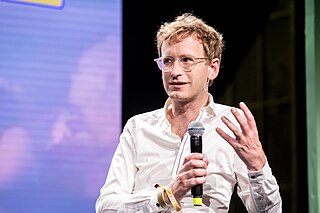
Adrian Daub is a German literary scholar and Professor of German and Comparative Literature at Stanford University, who has served as the Director of Feminist, Gender, and Sexuality Studies and serves as the Barbara D. Finberg Director of the Clayman Institute at Stanford.

Ernestine Christine Reiske was a German translator of classical texts. She was a scholar of Greek literature, and oriental languages and literature.
References
- ↑ Burke, James Wakefield (2019). The big rape. Popular giant. hoopla digital. United States: Eumenes Publishing. ISBN 978-1-83974-122-7.
- ↑ Congress, The Library of. "Burke, James Wakefield - LC Linked Data Service: Authorities and Vocabularies | Library of Congress, from LC Linked Data Service: Authorities and Vocabularies (Library of Congress)". id.loc.gov. Retrieved 2022-01-04.
- ↑ Martens, Klaus (2000). Pioneering North America: Mediators of European Culture and Literature. Königshausen & Neumann. ISBN 978-3-8260-1756-8.
- ↑ Martens, Klaus (2000). Pioneering North America: Mediators of European Culture and Literature. Königshausen & Neumann. ISBN 978-3-8260-1756-8.
- ↑ "James W. Burke - The Big Rape". Good Reads .
- ↑ Hunter, Sam (1952-08-03). "A City Humiliated; THE BIG RAPE. By James Wakefield Burke. 282 pp. New York: Farrar, Straus A Young. $3". The New York Times. ISSN 0362-4331 . Retrieved 2022-01-04.
- ↑ Schmidt-Harzbach, Ingrid (1984-11-01). "Eine Woche im April. Berlin 1945. Vergewaltigung als Massenschicksal". Feministische Studien (in German). 3 (2): 51–65. doi: 10.1515/fs-1984-0206 . ISSN 2365-9920. S2CID 151868705.
- ↑ Martens, Klaus (2000). Pioneering North America: Mediators of European Culture and Literature. Königshausen & Neumann. ISBN 978-3-8260-1756-8.
- ↑ Garraio, Júlia (2013-10-01). "Hordes of Rapists: The Instrumentalization of Sexual Violence in German Cold War Anti-Communist Discourses". RCCS Annual Review. A selection from the Portuguese journal Revista Crítica de Ciências Sociais (5). doi: 10.4000/rccsar.476 . ISSN 1647-3175.
- ↑ Meyer, Martin (2001). "American Literature in Cold War Germany". Libraries & Culture. 36 (1): 162–171. doi:10.1353/lac.2001.0015. ISSN 2166-3033. S2CID 152366794.
- ↑ Hendershot, Cyndy (2002-12-19). Anti-Communism and Popular Culture in Mid-Century America. McFarland. ISBN 978-0-7864-1440-6.
- ↑ "AMSEL". www.classicrimes.homepage.t-online.de. Retrieved 2022-01-03.
- ↑ ""Ami go home." (James Wakefield Burke) – Buch Erstausgabe kaufen – A02725aP01ZZQ". www.booklooker.de (in German). Retrieved 2022-01-03.
- ↑ "Worldcat James W. Burke".
- ↑ University of Southern Mississippi, Special Collections, University Libraries (2016-07-20). "Wilson (Hugh B.) Manuscript". doi:10.18785/fa.m472 . Retrieved 2022-01-04.
{{cite journal}}: Cite journal requires|journal=(help)CS1 maint: multiple names: authors list (link) - ↑ "James Wakefield Burke, Of a Strange Woman manuscript". exploreuk.uky.edu. Retrieved 2022-01-04.